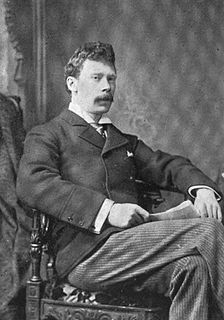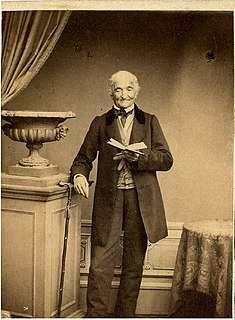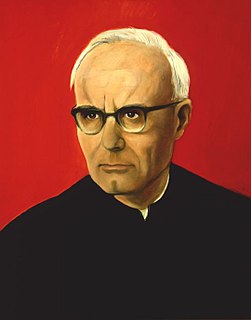A Quote by Mary Collyer
... those, who from an immoderate and false self-love, study to keep their humanity under, always take care, for their own sakes, to represent poverty to themselves, as something ridiculous, mean, and contemptible.
Related Quotes
Whether we love humanity or not, we must realize that we are part of it. My future depends entirely on the future of humanity, and so I am compelled to take care of humanity. That is why being compassionate is actually in my own best interest. And a symptom of my own peace of mind is that I can share comfort with others around me.
The friends of evangelical doctrine, and the advocates of orthodoxy, have the following objects to keep ever in view in this age; they must take care of their Bibles, that they be not mutilated or curtailed by lawless criticism; they must take care of their theology, that it be not perverted by false philosophy; and they must take care of their pulpits, that they be not occupied by heretical, unspiritual, or incompetent ministers.
Love is about bottomless empathy, born out of the heart’s revelation that another person is every bit as real as you are. And this is why love, as I understand it, is always specific. Trying to love all of humanity may be a worthy endeavor, but, in a funny way, it keeps the focus on the self, on the self’s own moral or spiritual well-being. Whereas, to love a specific person, and to identify with his or her struggles and joys as if they were your own, you have to surrender some of your self.
Nothing can tell us so much about the general lawlessness of humanity as a perfect acquaintance with our own immoderate behavior. If we would think over our own impulses, we would recognize in our own souls the guiding principle of all vices which we reproach in other people; and if it is not in our very actions, it will be present at least in our impulses. There is no malice that self-love will not offer to our spirits so that we may exploit any occasion, and there are few people virtuous enough not to be tempted.
Success is as dangerous as failure.
Hope is as hollow as fear.
What does it mean that success is a dangerous as failure?
Whether you go up the ladder or down it,
you position is shaky.
When you stand with your two feet on the ground,
you will always keep your balance.
What does it mean that hope is as hollow as fear?
Hope and fear are both phantoms
that arise from thinking of the self.
When we don't see the self as self,
what do we have to fear?
See the world as your self.
Have faith in the way things are.
Love the world as your self;
then you can care for all things.
Only in love can I find you, my God. In love the gates of my soul spring open, allowing me to breathe a new air of freedom and forget my own petty self. In love my whole being streams forth out of the rigid confines of narrowness and anxious self-assertion, which make me a prisoner of my own poverty emptiness. In love all the powers of my soul flow out toward you, wanting never more to return, but to lose themselves completely in you, since by your love you are the inmost center of my heart, closer to me than I am to myself.
To study the Way is to study the Self. To study the Self is to forget the self. To forget the self is to be enlightened by all things of the universe. To be enlightened by all things of the universe is to cast off the body and mind of the self as well as those of others. Even the traces of enlightenment are wiped out, and life with traceless enlightenment goes on forever and ever







































